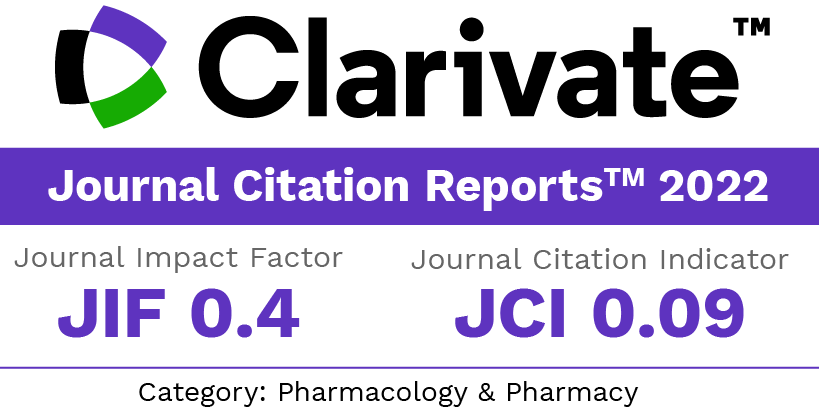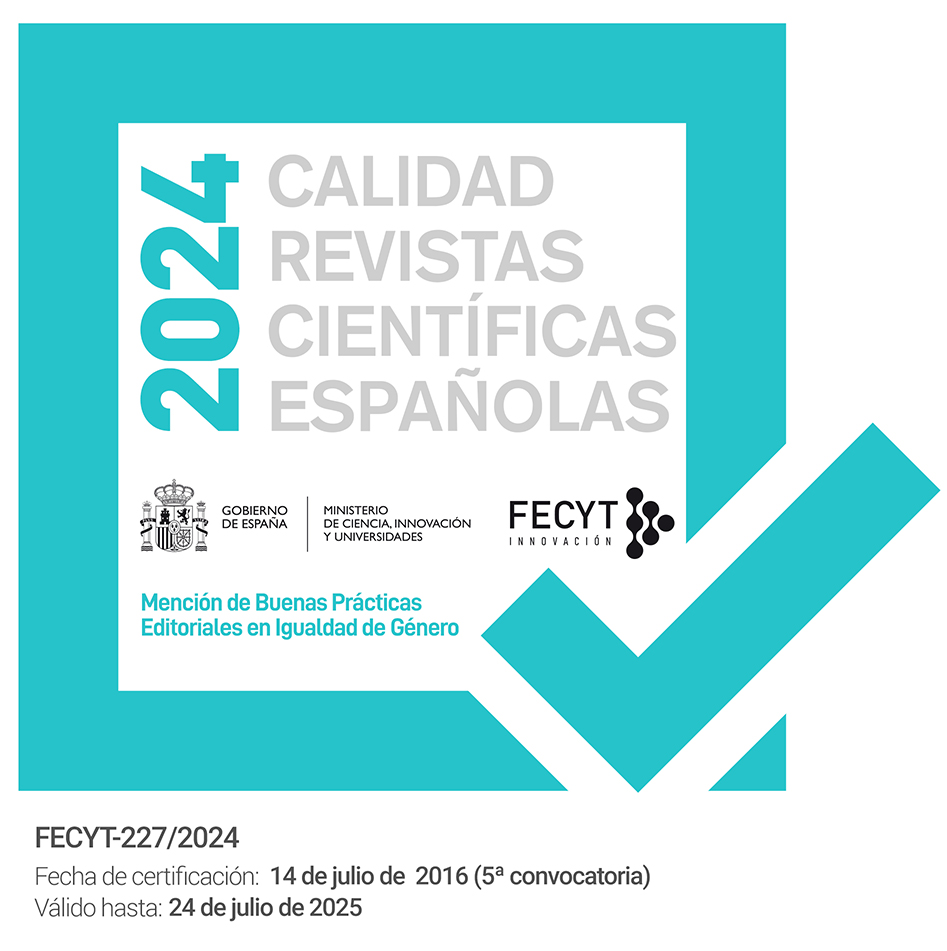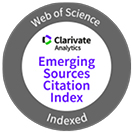ISSN-e: 2340-9894
DOI: 10.30827/ars
Code of Ethics
This code is based in the transparency and good practices in academic publications of the COPE -Committee on Publication Ethics: http://publicationethics.org. It is directed to editors and authors.
- Editors
- Publication decision: the editors will guarantee the selection of the most qualified experts to get a critical assesment of the work, with the less narrowness possible.
- Honesty: the editors evaluate the articles for publication only based on its contents, according to the editorial policy of the review.
- Confidentiality: all the editorial board is committed to not revealing information related to the articles recived for publication with other people except authors, referees and editors. Anonymity is practiced to preserve the intelectual integrity of the hole process.
- Conflict of interests and disclosure: publishers commit not to use in their research content of the articles sent for publication without the written consent of the author.
- Time of the editorial process: The editorial team undertakes to communicate on time the reception, evaluation and decision, correction or rejection of the works received in no more than 70 days.
- Reviewers
- Contribution to the editorial decision: The people engaged in the evaluation of the works received must make a critical, constructive and unbiased review, in order to guarantee the scientific and literary quality in their area of knowledge.
- Time management: The reviewers commit to evaluate the works in the shortest time possible to observe the delivery deadlines, since in Ars Pharmaceutica works time must be optimized to ameliorate the editorial management. The reviewer who does not feel competent in the subject to review or who can not finish the evaluation in the scheduled time will notify the publishers immediately.
- Objectivity: The review will be as objective as possible, without mediating personal opinions about the authors. All assessments must be justified in a report. This report should be as exhaustive as possible so as to enable the authors to clearly understand the suggested modifications or corrections or, in case the work is rejected, to understand the reasons for that decision. Likewise, if there is any conflict of interest, the review of the work must be rejected.
- Confidentiality: Manuscripts are distributed anonymously. However, each manuscript assigned must be considered confidential. Therefore, these texts should not be discussed with other people without the express consent of the authors or publishers.
- Visualization of the text or Bibliographic references: The authors commit to indicate precisely the bibliographical references of fundamental works possibly forgotten by the author. The reviewer should also inform the editors of any similarity or overlap of the manuscript with other published works.
- Conflict of interest and disclosure: Confidential information or information obtained during the peer review process should be considered confidential and can not be used for personal purposes. Reviewers will review a manuscript only if there are no conflicts of interest.
- Authors
- Originality and plagiarism: All works submitted for publication must be unpublished, that is, authors of manuscripts sent to this journal assure that the work is original, that it does not contain parts of other authors or other fragments of works already published by the authors. They also confirm the veracity of the data and the results presented in the work, that they are original and that there is no plagiarism, no distortion or manipulation of the empirical data when they are used or the sources used to corroborate the hypotheses or conjectures.
- Commitment to exclusivity. Papers sent to Ars Pharmaceutica may not have been submitted simultaneously to another journal for selection. Likewise, they can not contain, even partially, results already published in other articles.
- List of sources: The author must always provide the correct indication of the sources and contributions mentioned in the article.
- Authorship: In the articles in which more than one person has contributed, the authorship should be ranked according to the responsibility and implication in their elaboration. Also, the inclusion of all persons who have made significant scientific and intellectual contributions in the development of the research and in the writing of the article must be guaranteed.
- Access and retention: The publishing team may require the authors or the data or sources on which the research is based, and may retain them for a reasonable time after publication, with the possibility of making them accessible to the publisher. In any case, for this purpose, all data must be thoroughly anonymised.
Malpractice Statement
The editorial process, after compliance with the required formal aspects, guarantees that all authors check and accept responsibility for the content and register the contribution of each one at the end of it, manuscript. The verification can be by signature or digital confirmation, including if there is a conflict of interest, which must be explicit in the publication.
In case of questioning about the authorship, the contact with the corresponding author will be established first and, if necessary, with all the authors. In case of impasse, you will be in contact with the affiliation institutions of the authors or financing involved in the development of the research.
Also, the editorial process requires that the authors present background information, such as the opinion of the corresponding ethics committee, authorization of the persons involved, among others. In case of doubt or questioning, the editor in chief will contact the author and, if necessary, all the authors requesting the completeness of the data.
To promote the predominance of originality of the texts, the journal adopts verification of duplication programs with texts already published. The journal informs the authors of the program in use in the process of sending the articles.
When there is doubt or questioning, the editor in chief will contact the corresponding author and, if necessary, all the authors and if duplication is demonstrated, the author's affiliation or financing institutions involved will be contacted. the development of research.
When there is doubt in the inclusion of citations and their references, the cited document will be verified or requested. When there is doubt or questioning, the chief editor should contact the author and, if necessary, all the authors.
If during the evaluation process, editors or evaluators identify excessive self-citations of authors and / or of the journal, the author will be contacted and, if necessary, all authors for clarifications to support the decision making.
Editors and evaluators must privilege impartiality, integrity and confidentiality in their evaluation, prioritizing constructive criticism and the deadline agreed with the journal. When there is doubt or questioning, the chief editor should contact the corresponding editor and / or the evaluators.
The fabrication or falsification of data and images are serious malpractice. The evaluation process is a criterion in the identification of such behaviors. And if there are doubts, the authors will be asked to verify the methodology and the results. In the case of a finding of malpractice, the affiliation institutions of the authors or financing involved in the development of the investigation will be informed.
The journal will inform the authors in the instructions how to receive notice of suspected misconduct.
In case of doubts or questions considered above, the journal will follow the COPE flow diagrams for identification and guidance on malpractices. Eventually when there is a challenge to the decision of the journal, a committee of members of the editorial body and external to the journal will be constituted.
Retractions and errata
The article already published in which the misconduct was identified will remain indexed in the Ars Pharmaceutica database in the retracted condition. The retraction explains the reason for the retraction, through communication from the author or editor or other authorized agent, and published in the same journal. The retraction may be partial when the malpractice is applied to a specific part of the article, without compromising the set of published research. The article can not be "unpublished".
Cases of errors or failures, regardless of the nature or origin, which do not constitute misconduct, are corrected by means of errata.
The journal will publish the errata, corrections or retractions as quickly as possible.
For further details please visit:


















